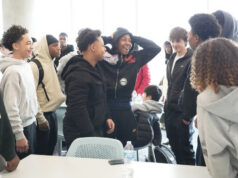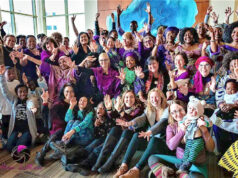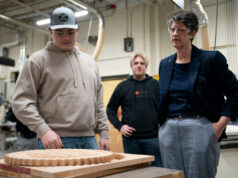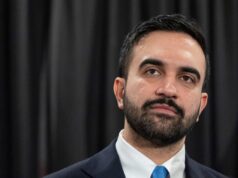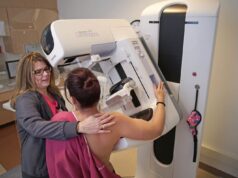This upcoming weekend, the Roots4Care (R4C) Cooperative will host the first Spanish-language Somos Raíces: Latin American Maternal and Child Health Conference at Edgewood College from May 17-19. Bringing together Latin American healthcare specialists, midwives, anthropologists, and historians striving for the wellness of Latinx women, infants, and families, the gathering will be the first of its kind in the United States.
The conference, which coincides with International Week for Respecting Childbirth (May 13-20), is open to all community members — from social workers, to teachers, to students — looking to learn more about people-centered and systems-driven pathways to creating better well-being outcomes for immigrant families. Over 20 speakers will come to Madison from North Carolina, Chicago, Philadelphia, New York, and elsewhere.
All workshops will be held in Spanish, with headset options for those needing English translations. Topics will range from obstetric history, grief and perinatal loss, menstruation and reproductive health, stories of resistance and success in Latino parenthood, and much more.
Roots4Change, the driving force behind the conference, has been serving Latinx families in Dane County since 2014, and was incorporated into a collective in 2018. Originally a program coming out of the nonprofit organization Centro Hispano, R4C was started to fill a gap in care for Latinx-birthing people and families in Dane County.
“Due to my own experience as an immigrant mom, and what I went through with both of my pregnancies and births in Madison, I had the acute curiosity [and] the need to see if other women felt like me,” R4C manager Mariela Quesada Centeno said.
As the director of adult programs at Centro at the time, Quesada Centeno began to harness funding for the program, asking other women about their needs along the way.
“Many women had interest in being part of a healthcare workforce, but due to challenges like education and language barriers, or money and time, they weren’t necessarily able to get to that pathway,” she explained.
Soon after, Quesada Centeno and five other women founded Roots4Change, combining the two care frameworks of community health and doula workers to provide holistic and comprehensive support to Dane County’s Latinx families.
Quesada Centeno emphasized the importance of having both doulas and promotoras de salud [health promoters] as resources for young families:
“We have the doula supporting people within the prenatal birth and postnatal journey […] and then we have the community-based component that goes deeper into the prenatal health and locates that within their culture, their needs within their language, and [provides] resources, support, referrals, [and] more companionship beyond two to three prenatal appointments,” she said. “It connects people with a larger ecosystem.”
After a decade of doing this work, the members of R4C realized that having a conference of this nature was a dream that they all wanted to come into fruition. In planning it, they were very intentional about shifting typical power dynamics — both in language and expertise — to truly create a space that is “nested in the realities” of those attending.
“This conference has been developed, curated, and dreamt not by doctors, but by doulas, so it has that rootedness of being part of the family and being part of the community,” Quesada Centeno explained.

She continued: “It’s a space where it doesn’t matter if you don’t have a GED or if you have a Ph.D. This conference, [just] as the co-op is, is highly democratic, because we realize that knowledge is something that should not be erased. Doctors could learn as much from a mom and her story as a mom can learn from the doctor.”
To increase the conference’s accessibility, R4C has provided families with scholarships to attend, with priority given to those living in Wisconsin and those with small children. Quesada Centeno noted that they received many applications from families from out of state.
“We hear people applying for the scholarship saying, ‘There’s nothing like this in my state. I want to learn more about this and I want to have a better relationship with my daughter. I want to learn about my reproductive health.’”
In addition to this weekend’s programming, R4C will also be hosting 16 pre- and post-workshops led by reproductive justice leaders across Latin America, featuring speakers from Argentina, Colombia, Mexico, and Chile. These workshops, which will be conducted in Spanish, will discuss everything from practical skills like infant massages to anticolonial frameworks of caring for the body.
When asked about what she hopes will come out of the conference, Quesada Centeno emphasized its revolutionary potential.
“We’re [hoping] to create these insulated spaces of collective care and resistance,” she said. “It’s not gonna be a top-to-bottom conference, it’s not gonna be a conference of trickiness. It’s really going to be a conference of revolution.”
She additionally hopes that attendees will leave “with more questions than answers.” “When we’re not wondering or we’re not creating, we’re not investigating the things that could be.”


